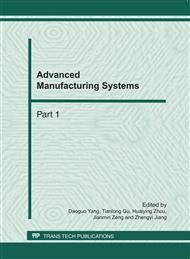p.2049
p.2053
p.2058
p.2063
p.2070
p.2075
p.2079
p.2083
p.2087
Infinite AdaBoost and its Application on Fault Diagnosis for Analog Circuits
Abstract:
AdaBoost algorithm can achieve better performance by averaging over the predictions of some weak hypotheses. To improve the power of classification ability of AdaBoost, an infinite ensemble learning framework based on the Support Vector Machine was formulated. The framework can output an infinite AdaBoost through embedding infinite hypotheses into a new kernel of Support Vector Machine. The stump kernel embodies infinite decision stumps. At last, the algorithm was used in fault diagnosis for analog circuits. Experimental results show that infinite AdaBoost with Support Vector Machine is superior than finite AdaBoost with the same base hypothesis set. The purpose of enhancing classification accuracy of AdaBoost algorithm is achieved.
Info:
Periodical:
Pages:
2070-2074
Citation:
Online since:
February 2011
Authors:
Price:
Сopyright:
© 2011 Trans Tech Publications Ltd. All Rights Reserved
Share:
Citation:


